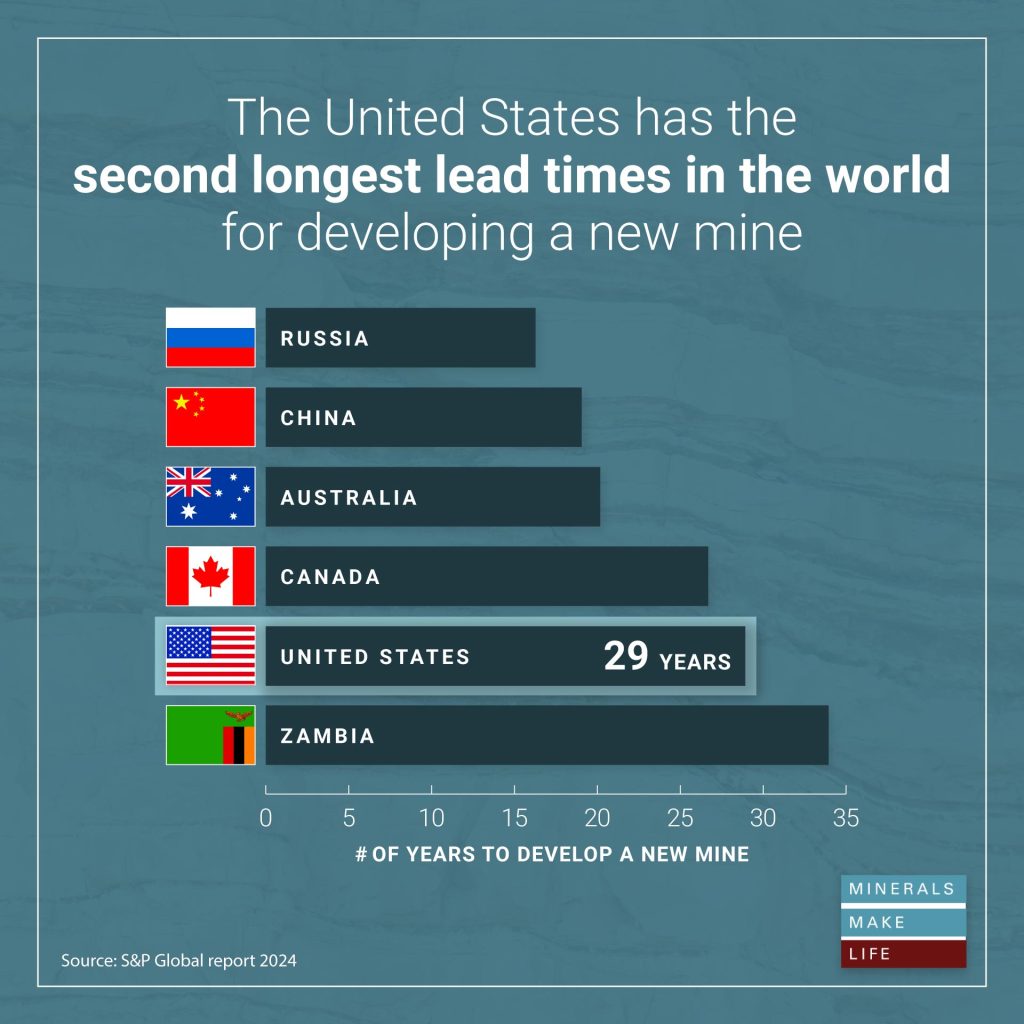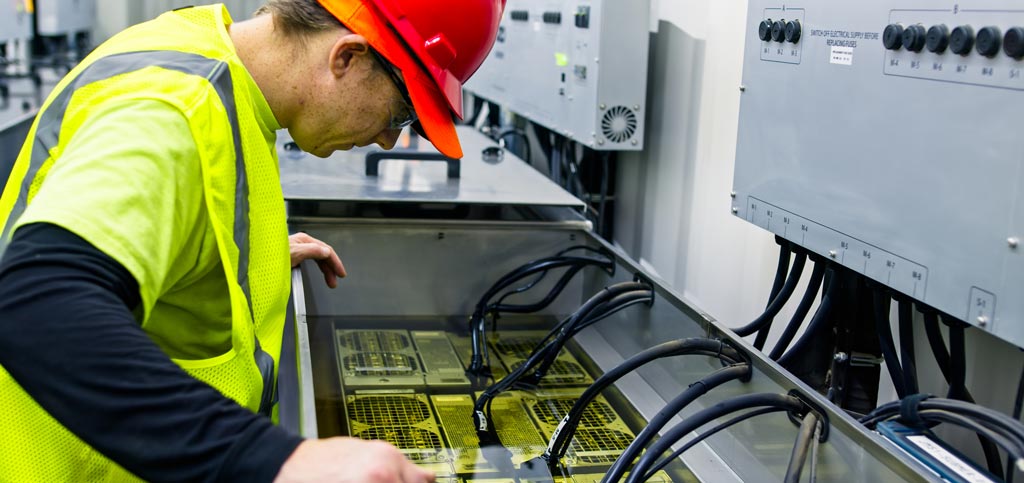April 09, 2025
President Trump’s Bold Shift in Domestic Minerals Policy
President Trump’s Bold Shift in Domestic Minerals Policy ...
Read More ›
As China expands control over U.S. mineral supply chains, the need for domestic mineral production to feed advanced energy manufacturing has never been more dire. Now is the time for action. While it is unfortunate that the 118th Congress was unable to approve the Energy Permitting Reform Act of 2024– which was approved by the Senate Energy and Natural Resources Committee on July 31, 2024– we are confident that the 119th Congress will prioritize unlocking the United States’ vast mineral reserves to strengthen national security and economic future.
The bipartisan bill, which was championed by then-Committee Chairman Joe Manchin and Ranking Member John Barrasso, would help reduce the long, complicated and costly process for developing mining projects, while protecting the environment and ensuring robust community participation.
We urge legislators to quickly approve this bipartisan measure so the U.S may move towards a more secure mineral supply chain and decrease its reliance on mineral imports.
The case for permitting reform was clearly illustrated by a recent report from S&P Global, titled Mine Development Times: The U.S. in Perspective, which found it takes an average of 29 years for a U.S. mineral mine to be developed. That is the second longest lead time in the world, behind only Zambia.
Prospective U.S. mines face an uncoordinated and redundant system of state and federal regulations, without centralized government support that is common in peer countries.

Uncertainties and challenges contribute to lower mining investments in the United States. According to S&P, over the past 15 years, Australia’s exploratory budgets were 57 percent higher and Canada’s were 81 percent higher than those in the U.S., despite the U.S. being home to similar and often greater mineral reserves.
Effective permitting reform would limit the amount of time that a mineral project could be held up in litigation, and then expedite legal decisions and agency actions following court rulings. The more efficient process would encourage interest and investment in U.S. mineral exploration and production.
The United States relies heavily on minerals from other countries. We are 100 percent import-dependent for supplies of 15 minerals. For 49 other minerals including silver, nickel, antimony, platinum and titanium, imports make up more than half of our national supply. These minerals are essential to manufacturing, energy, defense, technology and every sector that drives our economy.
China dominates global production for many of these, including minerals that are essential to military technology, U.S. manufacturing and energy production, and has shown a willingness to weaponize its position by limiting the export of key minerals.
Unless we urgently step up domestic minerals mining, the United States will fall further behind the rising demands for minerals.
Development of advanced energy technology is projected to balloon the amount of minerals that manufacturers need in the coming decades. The world will require more copper in the next 12 years than in the last 120, and U.S. consumption of lithium, cobalt and nickel will be 23 times greater by 2035 compared to 2021, according to S&P.
Bringing more mineral mining home would also create widespread economic benefits:

S&P’s analysis demonstrates that it’s past time to address our needlessly complex permitting reform process. The NMA strongly supports the Senate’s recent bipartisan efforts towards this goal. It is an historic step towards streamlining our permitting processes to address the needs of today and tomorrow.
Publisher note: Originally published November 8, 2024, and was updated on January 16, 2025.